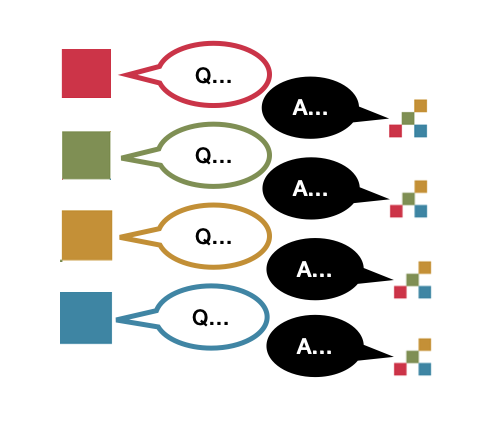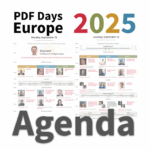New process to highlight how PDF’s latest specification answers many questions

A developer and researcher working on PDF technologies for more than 20 years, Peter is the PDF Association’s CTO and an independent technology consultant.


The PDF definition has always evolved, with each iteration of PDF’s definition improving interoperability of both new and existing features regardless of version number. Developers have always used the latest spec available to clarify their understanding and resolve differences between implementations.
Today, the latest and most up-to-date definition of PDF is defined by the nuances of thousands of requirements, all expressed in “ISO-ese” - the formal international English required for ISO standards.
This latest definition is the only PDF specification developed in an open, vendor-neutral forum. Several major sections were entirely rewritten while thousands of other clarifications addressed ambiguities present in earlier editions.
For those who still rely on earlier specifications, now is the time to shift to the latest and most up-to-date definition of PDF as defined in ISO 32000-2, available at no cost from the PDF Association.
However the task of identifying new or modified statements in the latest ISO standard that are applicable to existing features of PDF can be daunting, especially as there were so many significant changes from PDF 1.7 in 2008 to PDF 2.0 today. Does a wording change infer something technical (such as defining a corner case, or resolving an ambiguity, or stating a condition that was never previously described), or is it merely an editorial correction to meet some “ISO-ese” rule?
Today, interoperability problems have various causes:
- specific implementation bugs - are vendor-specific, and should be reported to the vendor;
- ambiguities or errors that still exist in the latest specification - such errata should be reported via the pdf-issues GitHub repo so the specification can be clarified and improved for everyone. Guessing at solutions is not in anyone’s long-term interest;
- where the specification allows implementation-dependency, or out-of-scope topics (for the PDF file format specification) such as user interface design, dynamic behaviors and recovery from invalid files;
- new features introduced in PDF 2.0 that are not yet widely implemented. No-cost access to the PDF 2.0 specification means that there are no longer any barriers to upgrading implementations (some PDF 2.0 example files are available for those starting down this path); or
- where nuances of clarifications in the latest PDF specification that addressed ambiguities, mistakes or were unstated in all earlier PDF versions have gone largely unnoticed. The PDF Association’s new process addresses this important final category.
BUSINESS NOTE
Reliable interoperability is at the very heart of PDF’s value proposition for end users. The PDF Association’s members-only previews of errata clarifications and common errors are helping ensure that software has a correct and common understanding of how to do PDF correctly.
Advance notice for members
PDF Association members will get advance previews of targeted test cases including in-depth technical explanations. After this limited preview period, this information will be made public, allowing the PDF ecosystem to align. This process is similar to the “responsible reporting” process used in cybersecurity, as it provides an opportunity for member technology to be updated prior to wider public dissemination.
 PDF Differences will not include security-related issues but will focus exclusively on portability and interoperability, PDF's "prime directive"! The PDF files provided will be minimal targeted test files highlighting specific issues seen across multiple widely-used implementations and that have only been resolved in recent editions of the PDF specification. The content is targeted at software engineers experienced with PDF.
PDF Differences will not include security-related issues but will focus exclusively on portability and interoperability, PDF's "prime directive"! The PDF files provided will be minimal targeted test files highlighting specific issues seen across multiple widely-used implementations and that have only been resolved in recent editions of the PDF specification. The content is targeted at software engineers experienced with PDF.
All PDF Association members will be notified of new test cases via email. The process will use a private members-only GitHub repo allowing PDF Association members to test and address any potential implementation issues within a fixed but reasonable timeframe (60 days) before the test information becomes public. Implementations at fault will not be named or identified.
More details will be forthcoming in the coming weeks.




